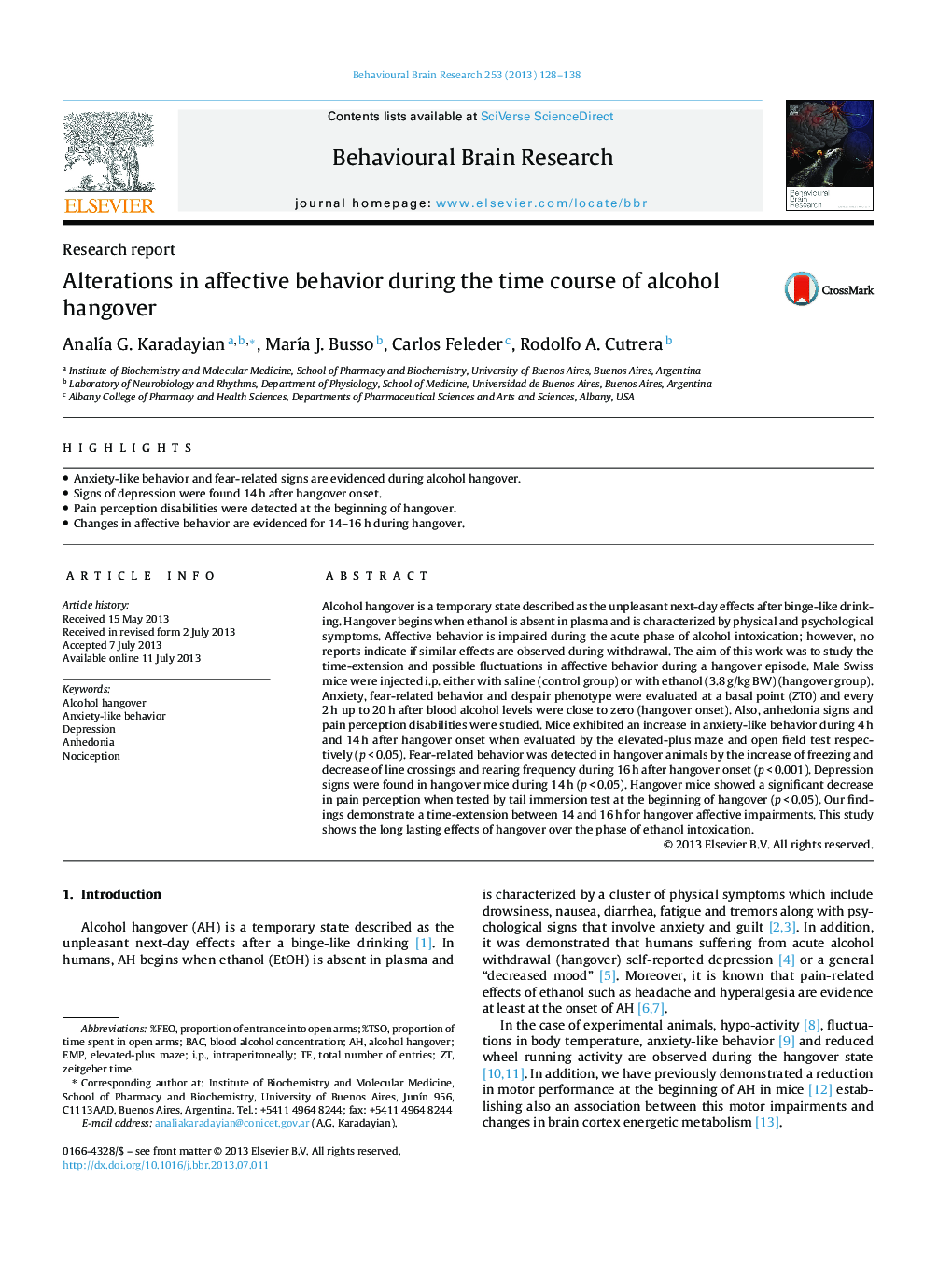| کد مقاله | کد نشریه | سال انتشار | مقاله انگلیسی | نسخه تمام متن |
|---|---|---|---|---|
| 6258650 | 1612979 | 2013 | 11 صفحه PDF | دانلود رایگان |
- Anxiety-like behavior and fear-related signs are evidenced during alcohol hangover.
- Signs of depression were found 14Â h after hangover onset.
- Pain perception disabilities were detected at the beginning of hangover.
- Changes in affective behavior are evidenced for 14-16Â h during hangover.
Alcohol hangover is a temporary state described as the unpleasant next-day effects after binge-like drinking. Hangover begins when ethanol is absent in plasma and is characterized by physical and psychological symptoms. Affective behavior is impaired during the acute phase of alcohol intoxication; however, no reports indicate if similar effects are observed during withdrawal. The aim of this work was to study the time-extension and possible fluctuations in affective behavior during a hangover episode. Male Swiss mice were injected i.p. either with saline (control group) or with ethanol (3.8 g/kg BW) (hangover group). Anxiety, fear-related behavior and despair phenotype were evaluated at a basal point (ZT0) and every 2 h up to 20 h after blood alcohol levels were close to zero (hangover onset). Also, anhedonia signs and pain perception disabilities were studied. Mice exhibited an increase in anxiety-like behavior during 4 h and 14 h after hangover onset when evaluated by the elevated-plus maze and open field test respectively (p < 0.05). Fear-related behavior was detected in hangover animals by the increase of freezing and decrease of line crossings and rearing frequency during 16 h after hangover onset (p < 0.001). Depression signs were found in hangover mice during 14 h (p < 0.05). Hangover mice showed a significant decrease in pain perception when tested by tail immersion test at the beginning of hangover (p < 0.05). Our findings demonstrate a time-extension between 14 and 16 h for hangover affective impairments. This study shows the long lasting effects of hangover over the phase of ethanol intoxication.
Journal: Behavioural Brain Research - Volume 253, 15 September 2013, Pages 128-138
